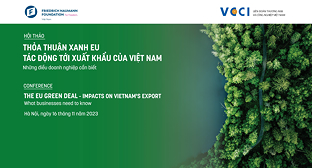India loses row over safeguard duty on hot-rolled steel at WTO
07/11/2018 12:00

Geneva: India lost a major trade dispute at the World Trade Organization (WTO) on Tuesday, after a dispute settlement panel largely upheld Japan’s complaint that New Delhi’s imposition of safeguard duty on imports of hot-rolled steel flat products during September 2015 and March 2018 violated core global trade rules.
A three-member panel ruled that the safeguard duties imposed by India at different periods during 2015 and 2018 are inconsistent with core provisions of the WTO’s Safeguards Agreement.
Though WTO members are entitled to impose safeguard duties to curb unforeseen surges in imports that cause material injury to their domestic industries, they must demonstrate with hard evidence that it is a sudden and sustained spike in imports causing injury to its domestic industry. Moreover, members must strictly adhere to rules during investigations and subsequent imposition of safeguard duties.
Over the years, there have been repeated criticisms by WTO members against the manner in which the office of the director general of the safeguards in India pursued investigations based on complaints made by the domestic industry.
Japan launched the dispute settlement proceedings against India last year challenging the “definitive” safeguard duties imposed on imports of hot-rolled steel flat products by the revenue department of the Indian finance ministry during September 2015 and March 2018.
It argued that the definitive safeguard duties of 20% ad valorem minus anti-dumping duty imposed by the Indian revenue department from 14 September 2015 to 13 September 2016, 18% ad valorem from 14 September 2016 to 13 March 2017, 15% from 14 March 2017 to 13 September 2017, and 10% ad valorem from 14 September and 13 March 2018, are inconsistent with several core provisions of the WTO’s Safeguards Agreement.
Japan said India’s definitive safeguard measures violated several provisions of the World Trade Organization’s Agreement on Safeguards. Tokyo had maintained that the Indian measures also violated the most-favoured-nation agreement and the rules on quantitative restrictions. Several countries, such as the US, Australia, China, the EU, Indonesia, Kazakhstan, South Korea, and Russia, joined as third parties in the dispute.
In its ruling, the panel said India’s safeguard duties are inconsistent with several core rules of the global trade as they failed to “demonstrate that the unforeseen developments and the effect of GATT (General Agreement on Tariffs and Trade) obligations resulted in an increase in imports” of the steel products. India also violated several other provisions of the Safeguards Agreement, according to the panel.
The panel, however, rejected few claims of Japan’s complaint. India can appeal the panel ruling before the appellate body. Otherwise, the ruling will be adopted by the dispute settlement body within 20 to 60 days of circulation.
A three-member panel ruled that the safeguard duties imposed by India at different periods during 2015 and 2018 are inconsistent with core provisions of the WTO’s Safeguards Agreement.
Though WTO members are entitled to impose safeguard duties to curb unforeseen surges in imports that cause material injury to their domestic industries, they must demonstrate with hard evidence that it is a sudden and sustained spike in imports causing injury to its domestic industry. Moreover, members must strictly adhere to rules during investigations and subsequent imposition of safeguard duties.
Over the years, there have been repeated criticisms by WTO members against the manner in which the office of the director general of the safeguards in India pursued investigations based on complaints made by the domestic industry.
Japan launched the dispute settlement proceedings against India last year challenging the “definitive” safeguard duties imposed on imports of hot-rolled steel flat products by the revenue department of the Indian finance ministry during September 2015 and March 2018.
It argued that the definitive safeguard duties of 20% ad valorem minus anti-dumping duty imposed by the Indian revenue department from 14 September 2015 to 13 September 2016, 18% ad valorem from 14 September 2016 to 13 March 2017, 15% from 14 March 2017 to 13 September 2017, and 10% ad valorem from 14 September and 13 March 2018, are inconsistent with several core provisions of the WTO’s Safeguards Agreement.
Japan said India’s definitive safeguard measures violated several provisions of the World Trade Organization’s Agreement on Safeguards. Tokyo had maintained that the Indian measures also violated the most-favoured-nation agreement and the rules on quantitative restrictions. Several countries, such as the US, Australia, China, the EU, Indonesia, Kazakhstan, South Korea, and Russia, joined as third parties in the dispute.
In its ruling, the panel said India’s safeguard duties are inconsistent with several core rules of the global trade as they failed to “demonstrate that the unforeseen developments and the effect of GATT (General Agreement on Tariffs and Trade) obligations resulted in an increase in imports” of the steel products. India also violated several other provisions of the Safeguards Agreement, according to the panel.
The panel, however, rejected few claims of Japan’s complaint. India can appeal the panel ruling before the appellate body. Otherwise, the ruling will be adopted by the dispute settlement body within 20 to 60 days of circulation.
November 07, 2018
Source: Livemint
Source: Livemint
Các tin khác
- Textile and garment exports recovered positively (19/04/2024)
- Foreign steel imported en masse, manufacturers call for protection (19/04/2024)
- US targets Chinese steel with 'overcapacity' fallacy amid escalating trade tensions; move casts great uncertainty on stabilizing bilateral ties (19/04/2024)
- Thailand is considering implementing protective tariffs on imports from China (19/04/2024)
- Fruit and vegetable exports to RoK and Thailand surge (19/04/2024)
 Home
Home
 About Us
About Us




















